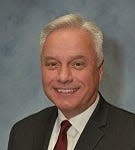Status quo isn't sustainable when it comes to the education of Kansas children

Recently, I voted in favor of House Sub for SB 83, which passed in the Kansas House.
The bill provides additional special education funding as requested in the governor's budget. It has mandatory salary increases for all Kansas teachers. It promotes parental involvement and direction in the education of their children. It provides a way for parents to decide what is taught or not taught to their children.
It allows low-income and poorly performing students to choose the learning environment in which they are best able to learn. It provides a flexible spending account for parents to use toward learning expenses, including college courses, that best meet the needs of their child.
All of this is accomplished while protecting Constitutional funding for our public schools as per the Kansas Supreme Court's Gannon decision.
I recently became acquainted with proficiency test data for Kansas. Student scores in math and English are not acceptable for anyone who cares, as I do, about the future of public education.
Some suggest we just provide more funding for the current system, and the problems will correct themselves.
Unfortunately, we are rapidly reaching a point in which there will be no additional money available at our current spending rates. K-12 education funding currently adds up to more than half the entire state budget. Kansas spends, on average, $20,000 per student every year in our public schools. Therefore, it costs Kansans over $1 million to educate just four kids throughout their K-12 journey.
I don’t think ever-growing levels of spending are either affordable or tolerable for constituents paying the bill with increasingly higher and higher property taxes.
Both financial and academic accountability are included in the bill. Financial accountability is provided through the administration by our state treasurer with required annual audits and oversight of student accounts. Also, education savings account purchases are required to be monitored in real-time.
Academic accountability is provided by those who care about student performance most — the parents. That’s the way it should be — the state oversees expenditures of public money, and parents oversee what is taught to their children.
Status quo is not sustainable. We can’t keep doing the same old things and expect different results.
This bill is our best shot at education reform with minimal adverse impact on school district budgets. I want to be someone who takes a stand for the future of education for all the students I represent — those in public and non-public schools.
Ron Bryce, MD, represents District 11 in the Kansas House.
This article originally appeared on Topeka Capital-Journal: Status quo isn't sustainable for the education of Kansas children
